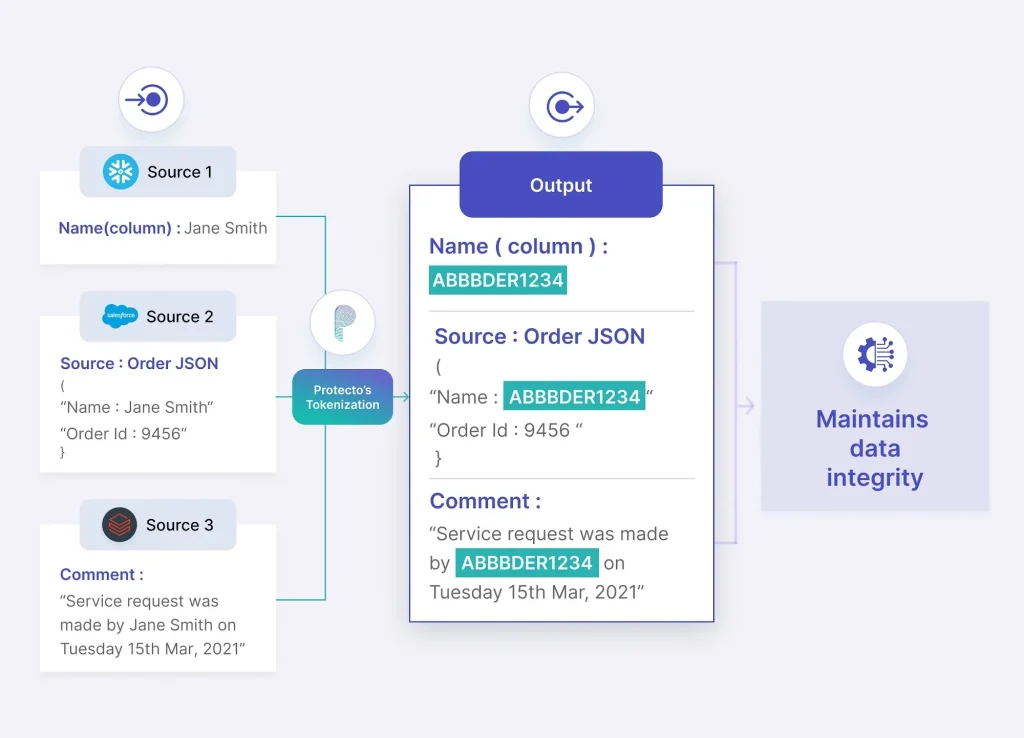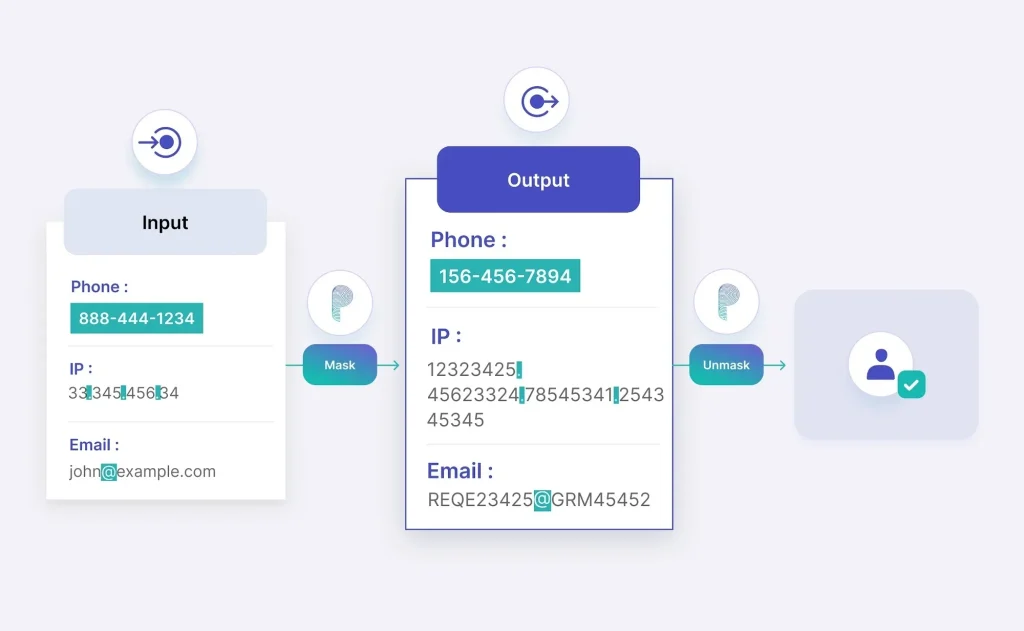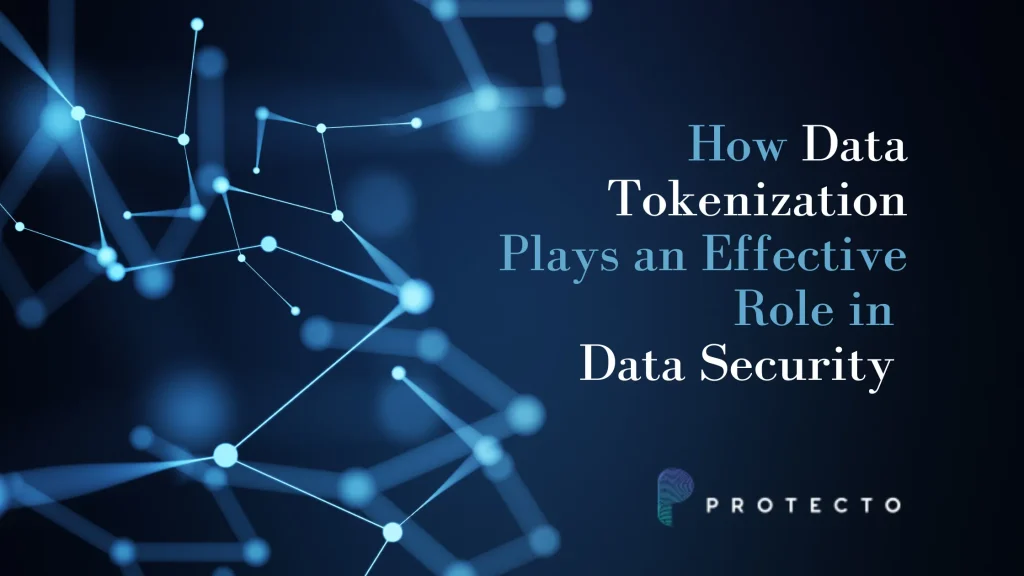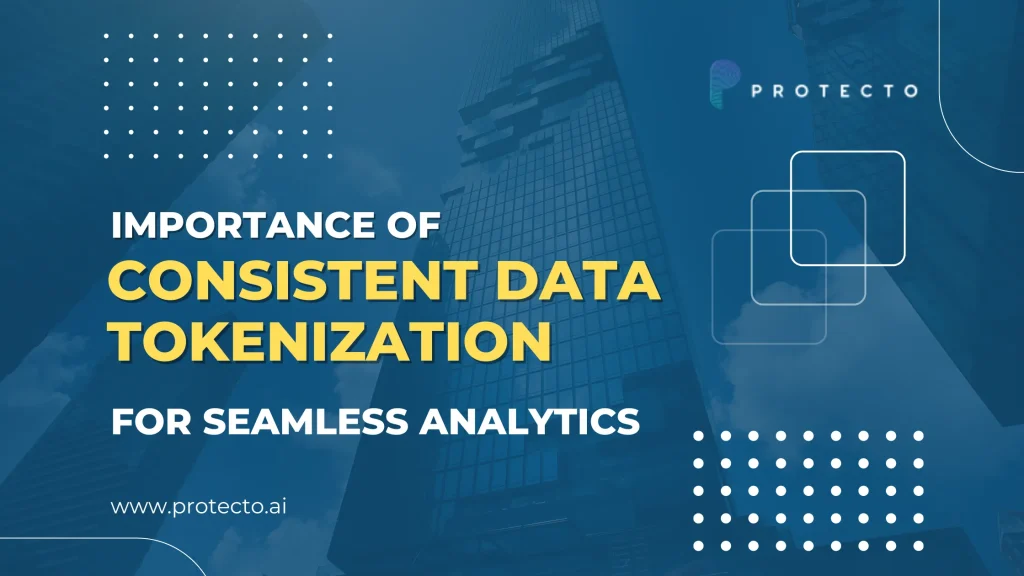Protecto Data Privacy Vault
Mask PII, Avoid Leaks, Stay Compliant
Protect sensitive data across structured and unstructured formats, ensuring accuracy and scalability for your AI-driven future.

- Trusted by Engineering Teams Building AI at Scale





How Data Tokenization Works?
Protecto APIs scan and mask sensitive information (PII, PHI) in your data. The best part? You can still use the ‘masked’ data for analysis, AI training, RAG and more

Safely Lock PII in a Vault
Identify and mask sensitive data (PII included) in a secure vault. Leverage masked data for analysis, context, and AI while keeping originals safe.

Preserve Data Utility
Unlike other masking tools that distort data, Protecto’s intelligent tokenization preserves data context and integrity. Enjoy accurate analysis and AI responses with consistent, format-preserving masking

Controlled Access to PII/PHI
Grant authorized users access to original data when needed, maintaining control and security.


Learn how our vault protects your data
This datasheet outlines features that safeguard your data and enable accurate, secure Gen AI applications.
Protect Your Sensitive PII Across Systems
Protecto 'consistently' masks sensitive data across all your sources, so you can easily combine and analyze data without losing valuable insights

Enhanced Data Privacy & Security
Replace sensitive PII/PHI data with masked tokens to safely use it for analytics, AI development, sharing, and reporting, minimizing privacy and security risks

Safe Data for Gen AI Agents
Use the data for AI and RAG/Agents, without exposing PII/PHI while maintain AI accuracy

Secure Data Analytics
Perform statistical analysis, and predictive modeling on masked data without the need to access sensitive data

Data Protection Across Systems
Confidently share data across systems without privacy concerns or inconsistencies. Simplify data exchange, synchronization, and integration by consistently tokenizing sensitive data.

Safe Data for Testing and Development
Mask PII and other sensitive data from production data when creating test data for development and testing, enabling a safer development

Improved Privacy and Compliance
Meet privacy regulations (HIPAA, GDPR, DPDP, CPRA etc.) requirements by masking PII and tightly managing sensitive personal data
Sign up for a demo
Why Protecto?
Protecto is the only data masking tool that identifies and masks sensitive data while preserving its consistency, format, and type. Enables accurate analytics, statistical analysis, and RAG without exposing PII/PHI

Easy to Integrate APIs
Our turnkey APIs are designed for seamless integration with your existing systems and infrastructure, enabling you to go live in minutes.

Data Protection at Scale
Deliver data tokenization in real-time APIs and asynchronous APIs to accommodate high data volumes without compromising on performance

On-Premises or SaaS
Deploy Protecto on your servers or consume it as SaaS. Either way, get the full benefits including multitenancy

Pay as You Go
Scale effortlessly and protect more data sources with our flexible, simplified pricing model

Secure Privacy Vault
Lock your sensitive PII in a zero-trust secure data privacy vault, that provides a robust solution to store and manage sensitive PII securely
Want to try Protecto in a sandbox?
Frequently Asked Questions
What is data tokenization?
In the domain of data security, “tokenization” refers to the process of substituting sensitive or regulated information, such as personally identifiable information (PII) or credit card numbers, with a non-sensitive counterpart known as a token. This token holds no intrinsic value and serves as a representation of the original data. The tokenization system keeps track of the mapping between the token and the sensitive data stored externally. Authorized users with approved access can perform tokenization and de-tokenization of data as required, ensuring secure and controlled handling of sensitive information.
What is the difference between data tokenization and encryption?
Tokenization involves replacing sensitive data with a token or placeholder, and the original data can only be retrieved by presenting the corresponding token. On the other hand, Encryption is the process of transforming sensitive data into a scrambled form, which can only beread and understood by using a unique decryption key
Is tokenized data usable for purposes such as analytics?
To enable various business objectives, such as analyzing marketing metrics and reporting, an organization might need to aggregate and analyze sensitive data from various sources. By adopting tokenization, an organization can reduce the instances where sensitive data is accessed and instead show tokens to users that are not authorized to view sensitive data. This approach allows multiple applications and processes to interact with tokenized data while ensuring the security of the sensitive information remains intact.
Is tokenization different from pseudonymization?
No, tokenization is a widely recognized and accepted method of pseudonymization. It is an advanced technique for safeguarding individuals’ identities while preserving the functionality of the original data. Cloud-based tokenization providers offer organizations the ability to completely eliminate identifying data from their environments, thereby reducing the scope and cost of compliance measures.
What types of data can be tokenized?
Tokenization is commonly used as a security measure to protect sensitive data while still allowing certain operations to be performed on the data without exposing the actual sensitive information. Various types of data like credit card data, Personal Identifiable Information (PII), transaction data, Personal Information (PI), health records, etc. can be tokenized.
What is the impact of tokenization on performance?
Real-time token generation happens in sub-seconds. This implies that the tokenization algorithm or method used is highly efficient and can handle large volumes of text in real-time applications without causing significant delays or bottlenecks.


